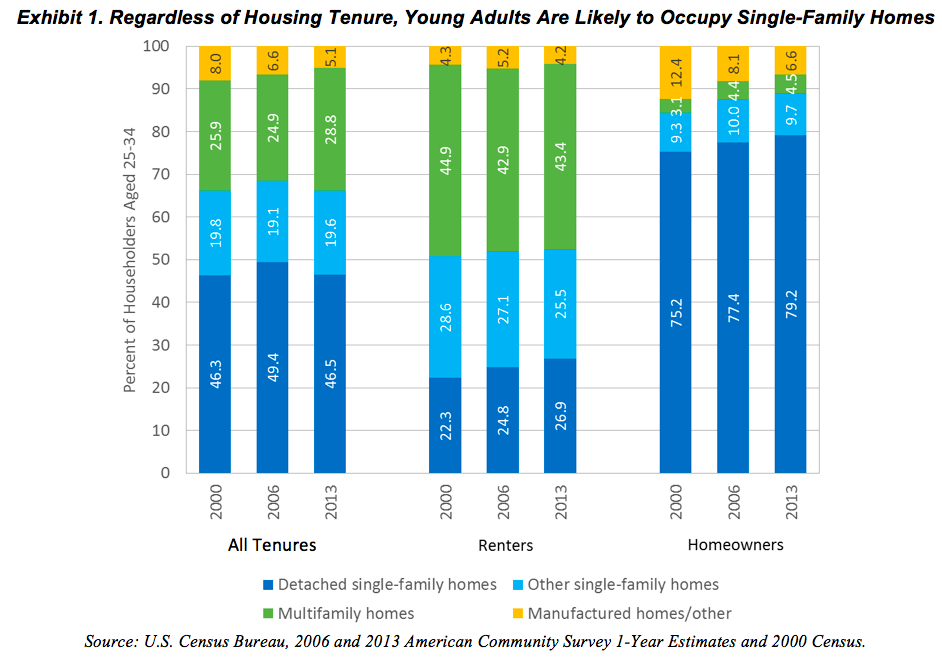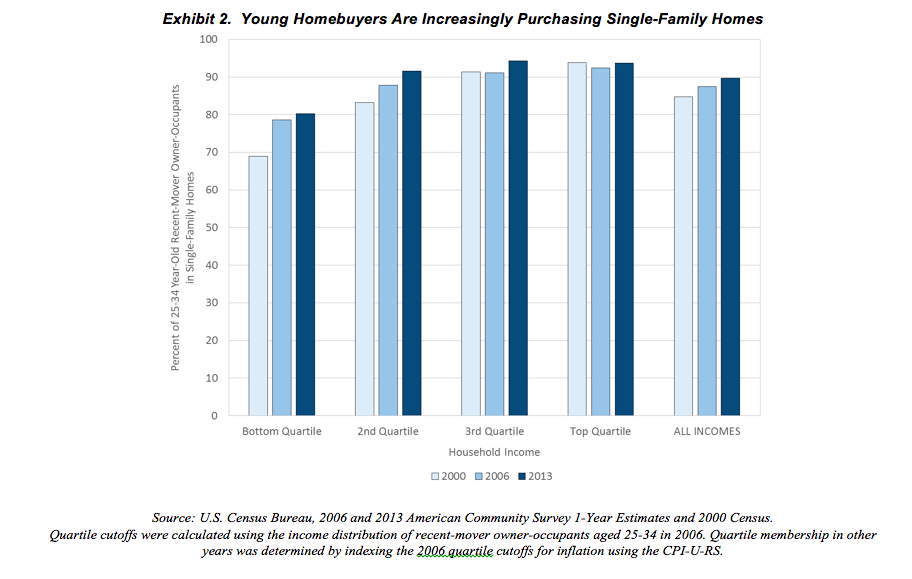Young adults prefer single-family homes, and in fact, 25-34 year-old homeowners are found to be more likely to reside in a single-family home today than their predecessors, Fannie Mae’s latest Housing Insight report showed.
The report challenges popular perceptions by showing that today’s young adults, like their predecessors, have a strong preference for single-family homes.
As the Fannie report states, Millennials’ decisions about when to form new households, whether to buy or rent, and what type of housing to occupy will "help to determine residential construction levels, home sales volumes, and the distribution of construction and lending activity across the multifamily and single-family markets."
While the analysis reveals that households with people aged 25-34 were less likely to occupy a single-family home in 2013 than in 2006, at the peak of the last housing cycle, the likelihood that a young household occupies a single-family home today is no different than it was in 2000, prior to the housing boom and bust.
The report found that when structure-type occupancy rates are disaggregated by housing tenure (renting vs. owner occupancy), 25-34 year-old homeowners are found to be more likely to reside in a single-family home today than their predecessors, and young renters today are roughly as likely to occupy a single-family home as the preceding generation.
Click to enlarge
(Source: Fannie Mae)
As for why there is a rising popularity of single-family homes, Fannie said that tightened credit standards might have shifted the distribution of homebuyers toward more affluent households.
“Given that housing consumption increases with income, it might then follow that single-family homes, which are typically larger and more expensive than other housing types, would capture an increased share of purchases among all young adults,” the report said.
Click to enlarge
(Source: Fannie Mae)
Despite the rebound in multifamily construction, the popularity of single-family housing among young adults should disprove that there is a fundamental generational shift has occurred in housing-type preferences.
“Millennials’ desire for single-family homes not only remains robust, but should strengthen in coming years as more members of the cohort age into their thirties, prime years for first-time homeownership,” the report said.







